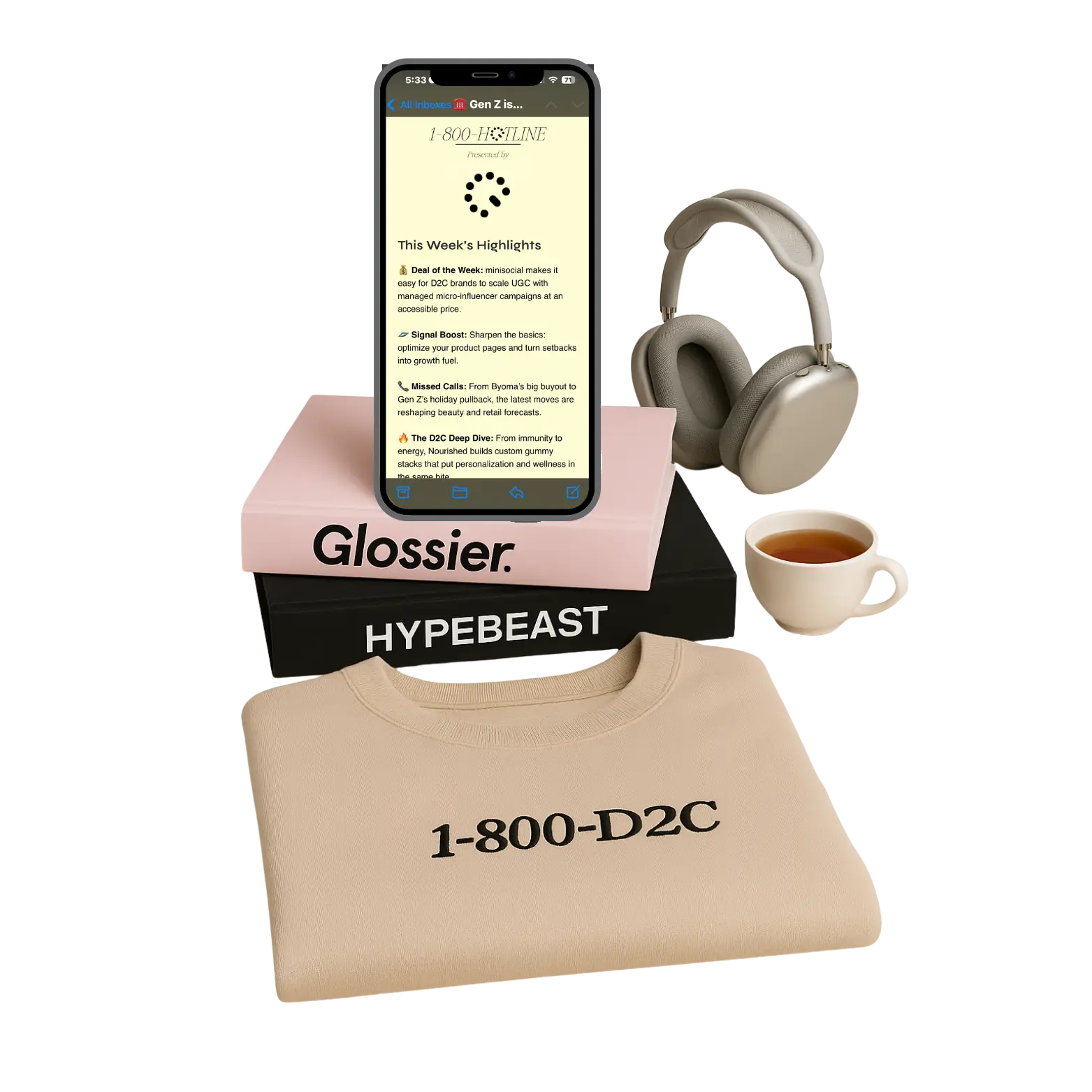
In this interview, I sat down with Taylor Borenstein and Millie Blumka, the co-founders of Stakt, a new and exciting D2C fitness brand offering the first-of-its-kind foldable yoga mats.
It was an awesome chat with the two founders and we covered everything from how they came up with the idea for Stakt, the product development process, growth and customer acquisition as well as their keys to success.
Plus, we also chat through their experience on Shark Tank and how they see the fitness category as a whole evolving over the next few years.
Now let’s jump into the interview.
Millie: Taylor and I are friends from college. We met as undergrads at Tulane. We’ve been best friends since the pandemic and we were working out a lot more at home. We realized that we were using yoga mats, but neither of us were just doing yoga. Half of the time, we were rolling up our mats for extra support, we were using blocks or chairs as extra equipment pieces. We just realized that there wasn’t something on the market that existed for this variety or workouts and had this level of functionality.
So, we put our heads together and came up with the idea for Stakt. Neither of us had started a business before or done anything similar. So, we partnered up together to create a mat that is not only twice as thick as a standard yoga mat, but also can fold sections for extra support and fold into a block. It acts as both a yoga mat and a second piece of equipment.

Taylor: Neither of us had started a business before. We had never created a product, or anything similar. Ironically, the hard part in getting started was the opaqueness of not knowing where to start, and not having a previous understanding or experience in how to bring a product to life.
Despite having a surplus of tools at our hands, including the internet, if you've never done something before, it’s difficult to know what (and who) to trust. I remember looking online for information on how to create a product, and coming across companies that advertised, “you give us the idea and we make the product,” and I had a feeling that this probably wouldn't be the best path to take.
What we found to be easy, was knowing what we wanted to solve for, and testing our hypotheses with prototypes and different materials. Ultimately, the product came to fruition, and we pushed through any difficulties by using our networks to connect with an engineer who was able to put our plans on paper for us. That engineer also had a contact in sourcing, so we were shown the ropes from there. The engineer introduced us to a factory, so we were able to source the product along with the design.

Millie: We launched a proof of concept at the end of 2021, and began spreading the word through friends of friends, trying to get it out there and going. We relaunched in March 2022, and posted a Tiktok about our story that went viral. That was really the first time we really saw people who we didn't know buying the product. Everything up until this year had been organic! We didn't do any paid ads until very recently.
Taylor: We try to stretch our paid dollars as far as possible, by looking for organic opportunities. Some of our most successful paid media ads were made on a random app. They were simply different pictures, that were a little messy, but told our story and who we are in a unique and authentic way.
We also still go to events, and bring mats, as well as loan mats to different brands, all of which is free of charge for us.
Millie: What really helped us in the beginning were community events in the fitness space. It's very tight-knit and each person has their own network within the community. By popping up at these events, we were not only able to spread the word about Stakt, but were also able to offer an opportunity for people to see the mat in person. From there, they tell their friends, or an instructor about Stakt, and it spreads quickly.
Taylor B: Our first year has shown great potential. We are focused on growing the D2C channel that we have been operating in. We introduced paid media on Facebook at the beginning of this year, and we introduced Google in May. It’s all pretty new for us, but we've seen consistent growth from these introductions.
We’ve also experienced growth at a more local level, surrounding partnerships that we've made… which is definitely in the playbook for expanding that D2C channel in the years to come.
We are also expanding our B2B channel, and have seen a demand from businesses who have (most likely) discovered us through the same marketing channels that D2C customers are finding us through. They're ordering 20 or 30 units for their gym, or studio, or hotel, whatever it may be. This has been very successful for us this year, so we’re definitely going to continue focusing our efforts there.

Millie: They actually found us through that viral tiktok, which is crazy! It was the most surreal experience, truly a once in a lifetime opportunity. Taylor and I are both huge shark tank fans! Going through the process was such a learning experience, and it forced us to learn our business like the back of our hand. Every detail, about anything and everything. It was a really, really great experience.

Taylor: There's definitely healthy competition in the space. There are the really big players that make the gym equipment that you see in every gym, and then there's the Lulu Lemons of the world, and so on.
In addition, there are these big apparel companies that also sell small fitness equipment, and then there are a very few handful of brands that do just more homegrown D2C-focused, which appeals to a different audience.
The idea of working out at home and building a home gym, and maybe even splitting your time between a gym and your basement, is newer just in the last few years. This is probably what's opened up some opportunity for the home fitness space. That being said, us and Bala, are creating smaller accessories…I don’t know much about the machine space.
Regardless, there's a lot of space for us to grow, along with other brands in the category, and continue making fitness equipment sexier!

Yotpo helps brands collect product reviews that build social proof, crucial for driving sales. With AI-powered review widgets, Yotpo can easily gather high-quality product reviews that influence customer purchasing decisions. Yotpo's partner integrations allow brands to display reviews and star ratings across social media and search engines like Google as well.
Our tech stack includes Shopify, Attentive, Klaviyo, Yotpo, Quickbooks, Rave, Skew IQ.
Taylor: Humility. It comes along with something Millie and I joke about…between the two of us, that it's actually a lack of confidence!
But the real truth, is that when we show ourselves and our brand, and we meet new teams when we pitch partnerships and go to events, it's like we are just two regular people trying to build this business.
We’re not serial entrepreneurs that are overly confident. I think it's worked in our favor, because we're showing our authentic selves, and our authentic product.
Discover new D2C brands, new eCommerce tools and read in-depth founder reviews each week.
